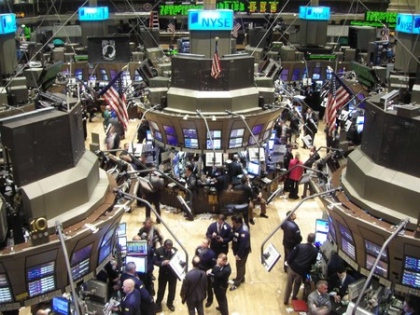
Stoil Topalov
Unfortunately this week we did not get good news from the finance world. The stock indexes all around the world registered downswings. In England, the FTSE fell 100 points, from 4207 to 3897 and in Germany, the DAX fell nearly 10%.
The Athens exchange also continued its vertical fall and it reached the disastrous levels of around 1600 points. Thursday was the only day, in which the index closed with 1.69% increase and yesterday it closed with 1601.23 points or with 0.86% loss. Brokers remind with nostalgia that 10 years ago the index was going with around 5800 points. Similar historic analysis impelled also Dow Jones, which fell to unseen levels for the last 6 years and closed with 7382 point yesterday – a decrease of more than 400 since Monday. This is partially due to the fears from nationalizing big banks like Citigroup and this keeps the investment activity low.
During this week, the global media paid great attention to the European Union and East Europe. In the center of attention were western European banks, which financed debts in Eastern Europe. As a whole the news for the Greek (and European) economy continue to be skeptical. A research by the European Statistics Services came out on Wednesday and showed that the annual income of the average Greek is ?19 200. As a comparison, the average annual income in the EU is ?23 600. Bulgaria and Romania have the lowest annual incomes in the EU - ?3000 each. Also on Wednesday, the European Commission announced that the Greek economic data are disappointing and oppressing and put it under supervision, in order to avoid a possible financial support from the International Monetary Fund.
Europe noted its lowest levels compared to the dollar in three months, as a result of the fear for the future of big European banks because of the bad economic data coming from Eastern Europe. Bigger Euro falls were averted after Germany announced that it is ready to give financial support to Euro zone countries, which cannot finance their state debts, among which are Ireland and Greece.
According to George Soros, Greece needs to be thankful it is in the Euro zone. “If it weren’t inside, not it would have had the same problems as Denmark for example, even though Danish economy is more advanced than the Greek,” said the famous financier for Financial Times. In his lecture for students from Columbia University, the creator of the “Open Society” institute predicts, that the bottom of the global financial crisis is still far away from our feet. George Soros explained that the bankruptcy of “Lehman Brothers” provoked misbalance in the global finance markets and still there are no signs that the balance is stabilizing.